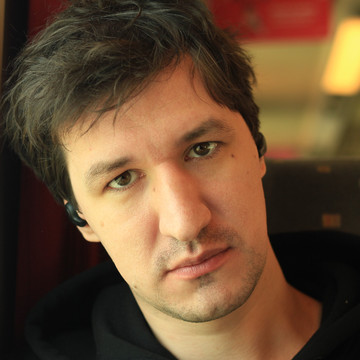
Short CV
| 2022— | Assistant Professor, Business School, University of Mannheim |
| 2020—2022 | Research fellow, Chair for Computational Social Sciences and Humanities, RWTH Aachen |
| 2018—2020 | Group leader, Computational Social Science Group, HSE University |
| 2018 | PhD Education, HSE University |
| 2014 | MSc. Interdisciplinary Approaches to Life Science, University of Paris |
| 2009 | MSc. Applied Mathematics and Computer Science, Saint-Petersburg State University |
- Smirnov, I., Oprea, C. and Strohmaier, M. (2023). Toxic comments are associated with reduced activity of volunteer editors on Wikipedia. PNAS Nexus, 2, 1–10.
- Smirnov, I., Lemmerich, F. and Strohmaier, M. (2021). Quota-based debiasing can decrease representation of the most under-represented groups. Royal Society Open Science, 8, 1–5.
- Smirnov, I. (2020). Estimating educational outcomes from students’ short texts on social media. EPJ Data Science, 9, 1–11.
- Sivak, E. and Smirnov, I. (2019). Parents mention sons more often than daughters on social media. Proceedings of the National Academy of Sciences of the United States of America : PNAS, 116, 2039–2041.
- Smirnov, I. (2019). Schools are segregated by educational outcomes in the digital space. PLOS ONE, 14, 1–9.
- Polivanova, K. and Smirnov, I. (2017). Что в профиле тебе моем Данные «ВКонтакте» как инструмент изучения интересов современных подростков. Voprosy Obrazovanija, 2017, 134–152.
- Smirnov, I. and Thurner, S. (2017). Formation of homophily in academic performance: Students change their friends rather than performance. PLOS ONE, 12, 1–16.
- Smirnov, I., Sivak, E. and Kozmina, Y. (2016). В поисках утраченных профилей: достоверность данных «ВКонтакте» и их значение для исследований образования. Voprosy Obrazovanija, 2016, 106–122.
- Ahnert, G., Smirnov, I., Lemmerich, F., Wagner, C. and Strohmaier, M. (2021). The FairCeptron: A framework for measuring human perceptions of algorithmic fairness. In , UMAP ’21 : adjunct publication of the 29th ACM Conference on User Modeling, Adaptation and Personalization : June 21–25, 2020, Utrecht, Netherlands (S. 401–403). , Association for Computing Machinery: New York, NY.
- Smirnov, I. (2018). Predicting PISA scores from students' digital traces. In , Proceedings of the Twelfth International AAAI Conference on Web and Social Media (ICWSM 2018) (S. 360–364). International AAAI Conference on Web and Social Media, AAAI Press: Palo Alto, Calif..
- Smirnov, I. (2017). The digital flynn effect: Complexity of posts on social media increases over time. In , Social Informatics : 9th International Conference, SocInfo 2017, Oxford, UK, September 13–15, 2017, Proceedings, Part II (S. 24–30). Lecture Notes in Computer Science, Springer: Berlin [u. a.].
- Alexeyeva, N., Smirnov, I., Gracheva, P. and Martynov, B. (2009). The finitely geometric symptom analysis in the glioma survival study. In , 2nd International Conference on Biomedical Engineering and Informatics, 2009 : BMEI '09 ; 17 – 19 Oct. 2009, Tianjin, China (S. 1–4). , IEEE: Piscataway, NJ.
- Sivak, E. and Smirnov, I. (2020). Measuring adolescents’ well-being: Correspondence of naïve digital traces to survey data. In Social Informatics : 12th International Conference, SocInfo 2020, Pisa, Italy, October 6–9, 2020, proceedings (S. 352–363). Berlin [u. a.]: Springer.